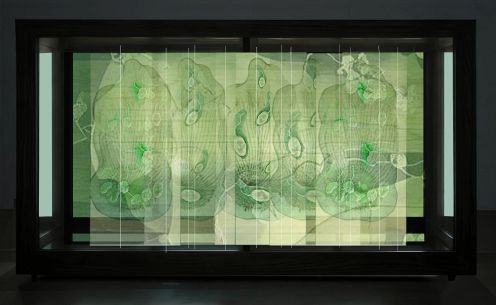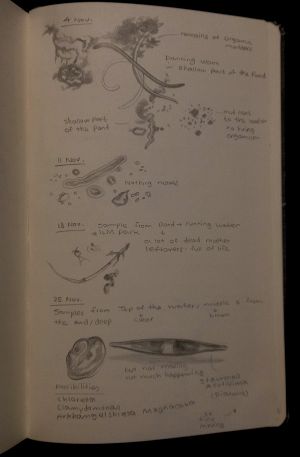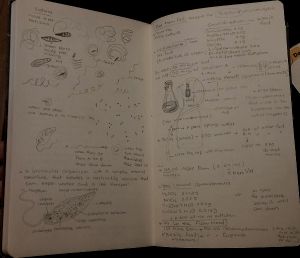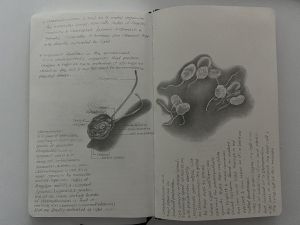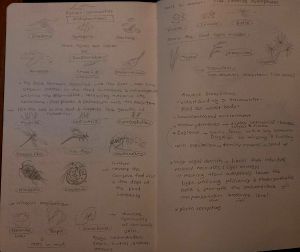Luminescent dance: the Algae Light spectrum
This project investigates how environment such light and nutrition interacts with Chlamydomonas and Euglena, a type of green algae. The research is to examine how different conditions affect the algae's movement and density. This will involve feeding the algae and keep them in a laboratory condition, collecting data, creating journal with drawings and photos, and providing a brief introduction the findings.
Installation:
The installation features several parallel plates made of delicate calque paper or sheer fabric moving and overlapping consistent with the light strength. These panels, or free form fabrics display drawn designs of Chlamydomonas, which can project density change by moving the panels through external threads, to be interactive or automatic. The lighting creates a watery ambiance, and ideally, it would be companied with some nature sounds. Incorporating sound could enhance the sensory experience of the installation.
Purpose
- This installation highlights the fragility and sensitivity of some of the most valuable single-celled organisms for humans and the environment. It offers an interactive experience that explores the relationship between the algae and light, providing an educating insights to this tiny-looking detail of science that some biologists dedicate years of their lives to study this essential species.
